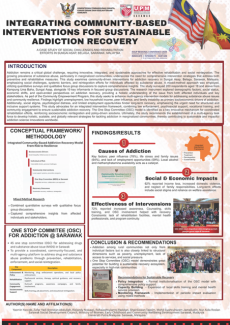Knowledge Share
These resources are automatically provided by the ISSUP Knowledge Share.
The Impact of Non-Monetary Contingency Management Interventions in Patients' Substance Use Treatment Engagement in Umm Salal Treatment & Rehabilitation Center, Doha Qatar
With globalization and increased transportation and communication, substance use disorder (SUD) has become a significant global challenge. The Middle East serves as both a source and transit hub for many psychoactive substances. Founded in...
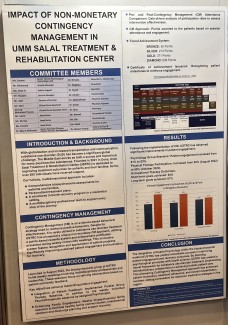
From Stigma to Strength: The Transformative Power of Activism for Former Injecting Drug Users with HIV
Injection drug users (IDUs) living with HIV/AIDS (PLWHA) often face multiple stigmas stemming from their HIV status and history of drug use. This stigma can impact their mental health, motivation to recover, and social integration. This...
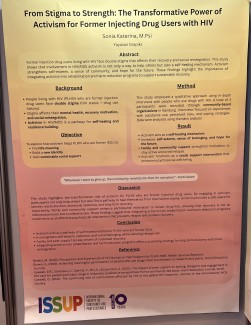
Influence of One Stop Centre (OSC) Program on Improving the Quality of Life of Drug Users at Mitra Adhyaksa Rehabilitation, Menur Hospital in 2024
Drug abuse has significant negative impacts on all aspects of life. Rehabilitation serves as an integrated facility for addiction recovery, aiming to enhance the quality of life of drug users. The One Stop Centre (OSC) program at Mitra...
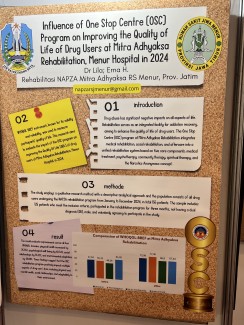
Implementation of Drug Rehabilitation Services Through a Community-Based Intervention Approach (IBM): Results of Community-Based Intervention Service Index (INSANI) in 2023
Background: Independent and community-based services should be available and easily accessible to drug users (UNODC, 2018). Therefore, the Deputy for Rehabilitation of BNN initiated the IBM Program in 2021. Although IBM services are...
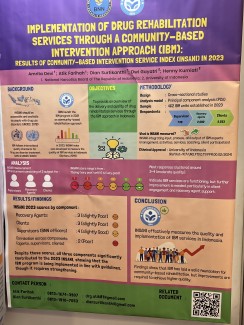
ISSUP Nigeria Knowledge Update Series (30th Session): Integrated Behavioural Health Approaches In Substance Use Disorder Prevention, Treatment And Recovery: Bridging Gaps In Service Delivery
ISSUP Nigeria presents the 30th session of its bi-monthly webinar in the Knowledge Update Series. This webinar will focus on the topic 'Integrated Behavioural Health Approaches In Substance Use Disorder (SUD) Prevention, Treatment And Recovery: Bridging Gaps In Service Delivery'.
Integrating Community-Based Interventions for Sustainable Addiction Recovery: A Case Study of Social Challenges and Rehabilitation Efforts in Sungai Asap, Belaga, Sarawak, Malaysia
Addiction remains a critical global challenge, requiring innovative, integrated, and sustainable approaches for effective rehabilitation and social reintegration. The growing prevalence of substance abuse, particularly in marginalized...
